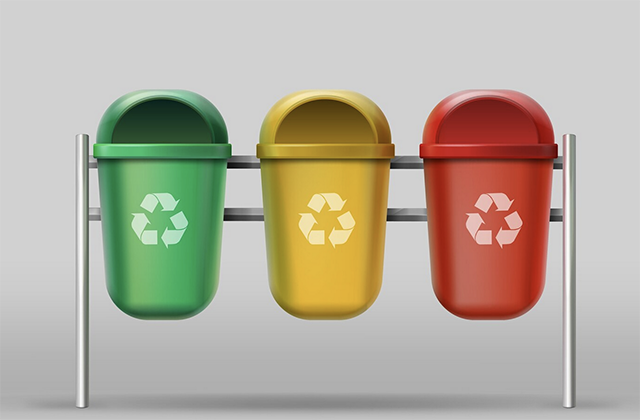
Introduction
The UK produces 210 million tonnes of waste each year, but only a small proportion is recycled. The rest goes to landfill sites where it takes between 30-60 years for it to degrade. On top of this, 25% of the UK’s household waste is made up of food and drink which could be diverted from landfill and repurposed through initiatives like Starbucks’ new Waste in Action project. Mini skip hire Adelaide are useful in starbucks coffee for disposing the paper cup coffee..
The UK produces 210 million tonnes of waste each year
The UK produces 210 million tonnes of waste each year. That’s the equivalent weight of 1.2 billion average-sized people. This is generated at a rate of 1.2kg per person per day and is equivalent to around 0.7% of our GDP, which is the highest recycling rate in Europe and sixth highest producer of waste in the world (behind USA, China, Japan, Germany and France).
25% of the UK’s household waste is made up of food and drink
In the UK, 25% of household waste is made up of food and drink – this equates to around 20 million tonnes per year.
It’s time we got serious about reducing this amount by taking advantage of what we have in front of us: our own kitchen scraps.
The UK produces 200,000 tonnes of coffee waste each year
You may be surprised to learn that the UK produces 200,000 tonnes of coffee waste every year – equal to the weight of nearly 2,000 elephants. This is a byproduct of the coffee production process: when freshly roasted beans are ground for use in brewing or instant coffee, some grounds are left over and disposed of in landfill sites.
Coffee grounds can also be composted (either directly on site or collected from cafés) and recycled into fertiliser pellets, but this is limited by supply as well as cost implications.
Each Briton throws away around 300kg of edible food each year
The average Briton throws away around 300kg of edible food each year. This is despite the fact that we throw away over 7 million tons of food every year, which equates to around 1/4th of all the food that we buy. In comparison, Americans throw away around 250kg on average and Germans throw away around 200kg on average (Eurostat data).
Coffee grounds could be used to power cars
- Coffee grounds are a great source of biofuel. They contain organic material, which means they can be used as an alternative fuel source for automobiles.
- Coffee grounds are made up of organic material, so they can be used as an alternative fuel source for cars.
- You might have to use them in your car’s diesel engine instead of regular gasoline, but if you’re interested in creating less trash and reducing your carbon footprint, it’s worth considering!
The amount of coffee grounds that Starbucks throws away weighs more than the company’s entire fleet of delivery trucks
Starbucks alone throws out an estimated 60,000 tonnes of coffee grounds each year. The company estimates that this is equivalent to the weight of its entire fleet of delivery trucks.
The potential for coffee waste to be used as a sustainable building material is huge. It’s 10 times better at absorbing oils and chemicals than clay, it’s easy to mould, and it smells nice when you walk through your house on a rainy day. It can also be used as a power source!
If you’re interested in using more sustainable building materials yourself, you might like our other article “5 Ways To Use Banana Peels In Your Home”.
Coffee grounds are 10 times better at absorbing oils and chemicals than clay
Coffee grounds are 10 times better at absorbing oils and chemicals than clay, meaning that coffee grounds could be used to clean up oil spills. The grounds could also be used to clean up oil from roads and car engines, as well as from water. This method is not only more efficient than using clay, but it also costs less money because coffee grounds are free while many people pay for their own waste disposal services (which includes the cost of dumping materials in a landfill).
This type of waste management solution has many positive implications: not only does it benefit the environment by minimizing landfill waste; it also benefits society by keeping people healthy by providing them with clean drinking water while reducing their risk of cancer or other diseases caused by chemical exposure.
Recycling coffee grounds could save millions pound of landfill tax
Landfill tax is charged by the government on waste that goes to landfill. The tax is £80 per tonne of waste, and it was introduced in 1996 to encourage recycling. Landfill tax is charged on waste that goes to landfill, not on recycled waste.
In what has been dubbed ‘the biggest waste recycling innovation in 20 years, a new scheme is being launched by Starbucks to tackle the huge amount of landfill waste that the UK produces annually.
In what has been dubbed ‘the biggest waste recycling innovation in 20 years, a new scheme is being launched by Starbucks to tackle the huge amount of landfill waste that the UK produces annually.
Starbucks will be recycling its used coffee grounds into an oil absorbent material.
Conclusion
The new scheme will see the company divert its vast amounts of waste away from landfill sites, by recycling it into products like soil nutrients and biofuels. The move is designed to help tackle climate change too, as well as reducing the amount of tax-payers money spent on landfill tax. Know more about ecoskiphire.com.au if you need a skip bins that comes in different sizes.